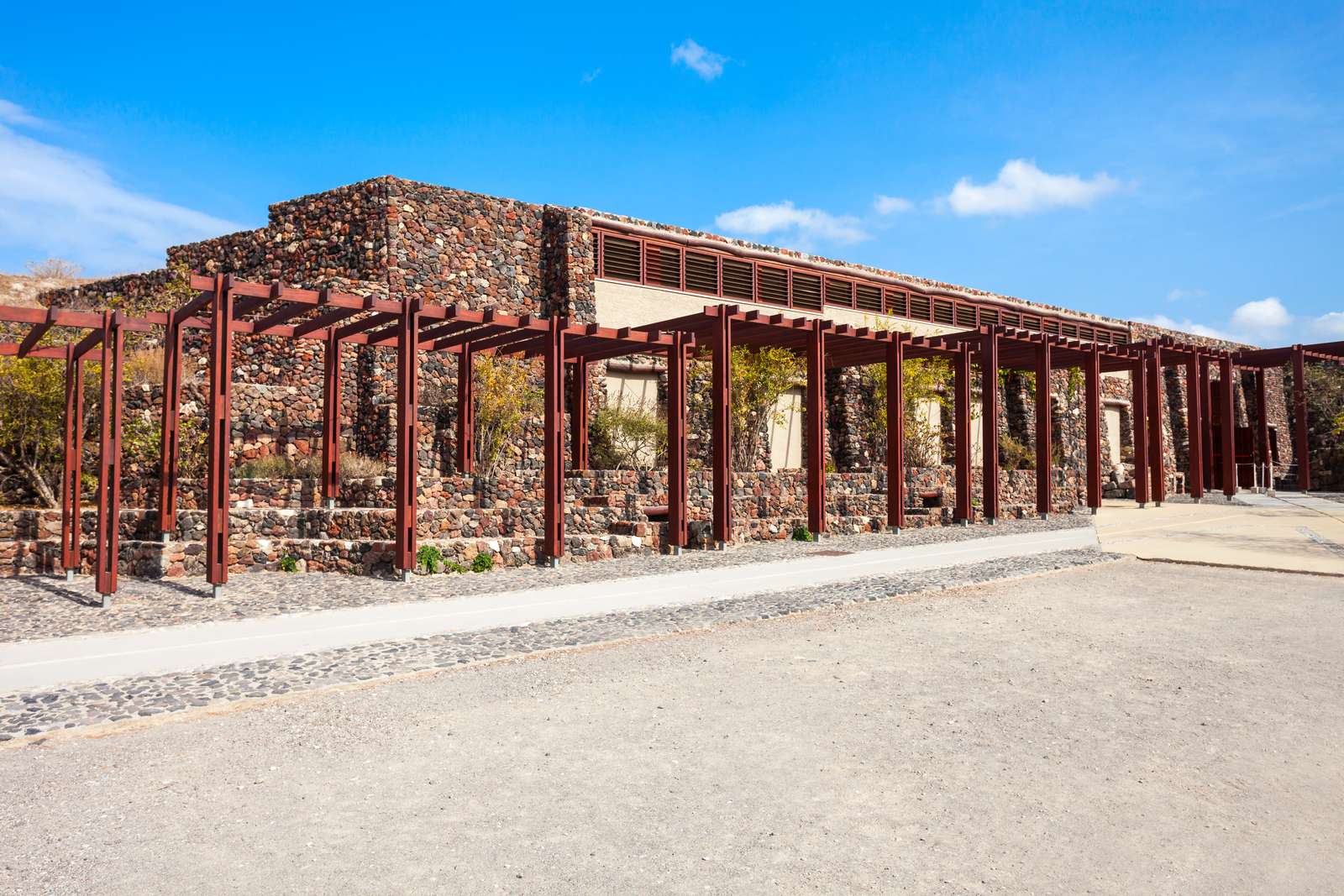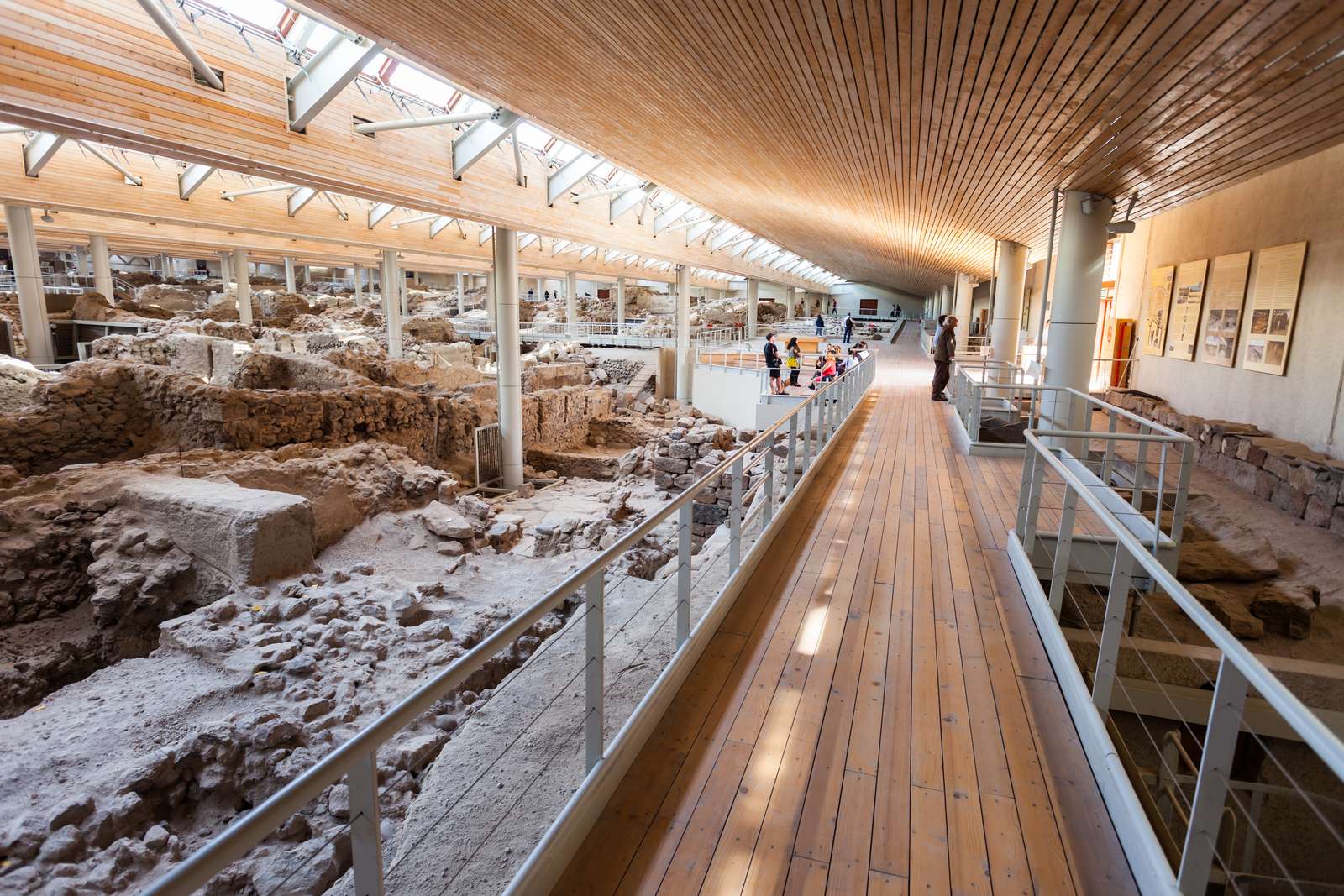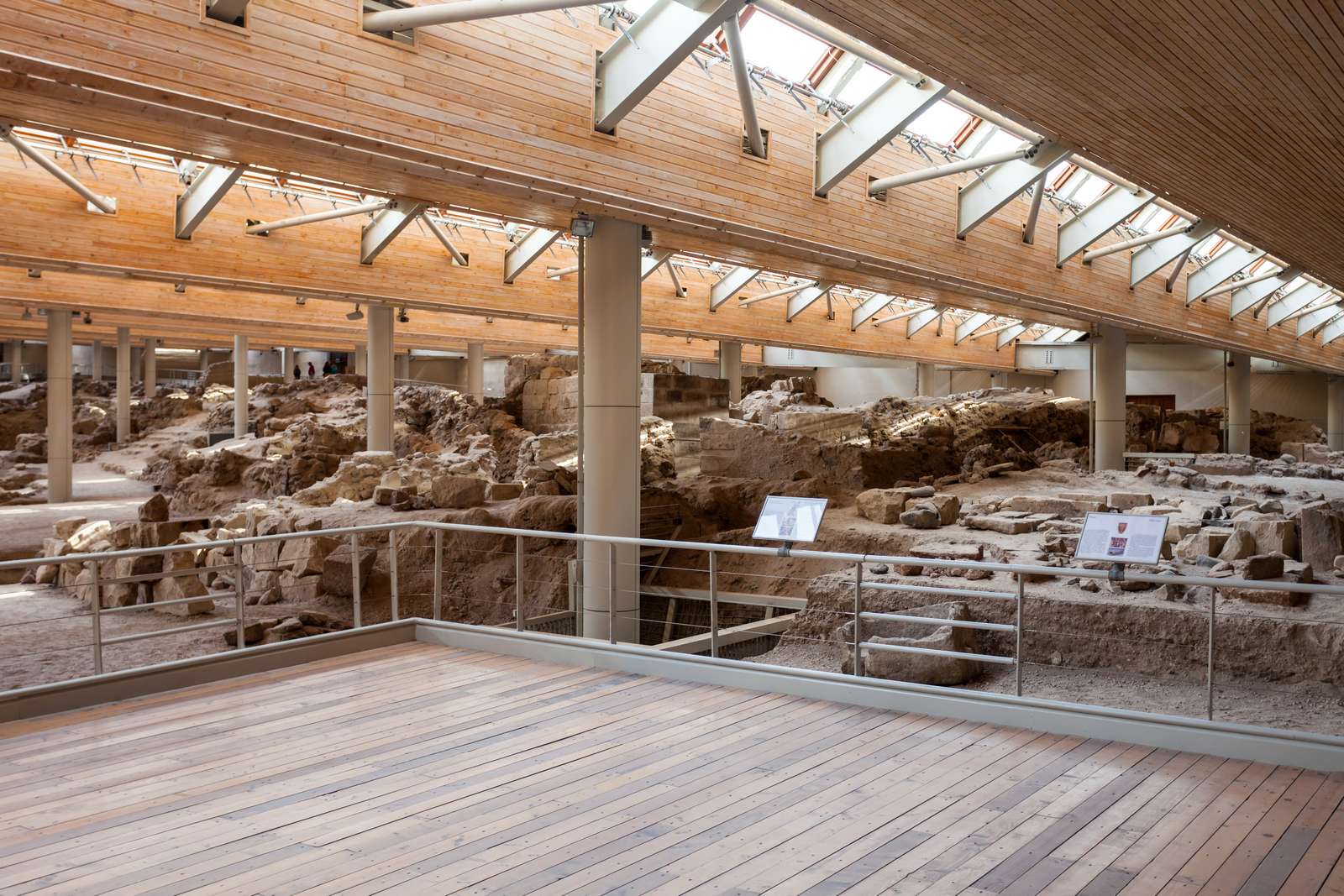Akrotiri Archaeological Site
About
Dating back to the 4th millennium BCE, Akrotiri evolved from a modest Neolithic village into a thriving Bronze Age port city, flourishing through trade with Minoan Crete, Egypt, and the broader Aegean world. The city's prosperity was abruptly halted in the 16th century BCE by the catastrophic eruption of the Thera volcano, which buried Akrotiri under layers of volcanic ash. This natural disaster, while devastating, remarkably preserved the city's multi-story buildings, intricate frescoes, pottery, and advanced infrastructure, including an extensive drainage system. Wikipedia+6thegreeksummer.com+6Akrotiri Museum+6Wikipedia
Today, visitors can explore the well-preserved ruins housed under a protective bioclimatic roof, with elevated walkways providing a unique vantage point over the ancient streets and structures. Highlights of the site include vibrant frescoes depicting scenes of nature and everyday life, such as the famous "Spring Fresco" and the "Blue Monkeys," offering invaluable insights into the art and culture of the time. The site's exceptional state of preservation and the wealth of artifacts uncovered make Akrotiri a must-visit destination for history enthusiasts and travelers alike.

















